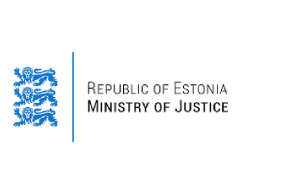A draft legislation has exited the Ministry of Justice that would make court decisions public before their entry into force in the future by publishing decisions of courts immediately after they are announced.
“The main aim of the draft legislation is to increase the openness of judicial proceedings in order to improve access to judicial practice,” Minister of Justice (Reform) Maris Lauri said in a press release on Monday. “Making more court decisions public will enrich the legal debate. Wider publication of judicial practice would also have a positive impact on the development of legal education.”
At present, the public has access to court decisions that have entered into force, but there is no access to decisions that have not entered into force and which have been annulled. Besides, it is not possible for members of the public to attend the delivery of a judgment in civil and administrative proceedings.
In practice, judgments in such proceedings are not publicly pronounced and the judgments will not be issued to persons outside the proceedings through the chancellery of the court.
“Since public pronouncement, in the meaning of the Constitution, is the oral pronouncement of a court decision at a court sitting, in these days, where more than half of the cases are handled in writing, an equivalent solution to oral pronouncement must be found,” the justice minister emphasized.
The second aim of the piece of draft legislation is to ensure the observance of the principle of the presumption of innocence and the protection of data with restricted access and of privacy when disclosing decisions that have not entered into force.
“For this reason, the personal data of the persons who participated in the proceedings will not be disclosed in the court decision. The exceptions are the accused and the acquitted whose names and personal identification codes are subject to disclosure. In the future, participants in proceedings will be entitled to seek the disclosure of their name and acquitted persons to seek the discontinuation of the disclosure of their name,” the Lauri said.
Under the bill, the publication of court decisions which have not entered into force is envisaged in all types of proceedings on the computer network in such way that the judgment is subject to publication on the website of Riigi Teataja immediately after it has been publicly pronounced and the judgment is marked as “not yet entered into force.” When the court decision enters into force or is annulled, said marking will be automatically removed from the decision and it will be given a new status of “entered into force” or “revoked.”
In addition to court decisions, when the bill enters into force, several court-issued orders, such as those concerning parole before serving of the full sentence, apartment ownership and co-ownership, access to public roads, etc. will also be subject to disclosure.
In addition, when it comes to the orders of the District Court or the Supreme Court terminating proceedings under the rules for actions by petition, also the decision of the county court in the same case must be made public.
The bill would also allow a person who is not a party to the proceedings to submit a request for access to the case-file in civil proceedings, in cases handled in closed proceedings and in cases that have been closed in criminal proceedings.
In the interest of the administration justice, a court hearing may be live-streamed on a website at the initiative of a court or at the request of a party to the proceedings. Information on the live streaming will be published on the website of Riigi Teataja.
The Code of Criminal Procedure is to be supplemented by adding a provision granting a right of appeal to a person on whom the court has imposed an obligation of secrecy in respect of facts disclosed at a hearing.
The bill is planned to enter into force on June 1 2022.




